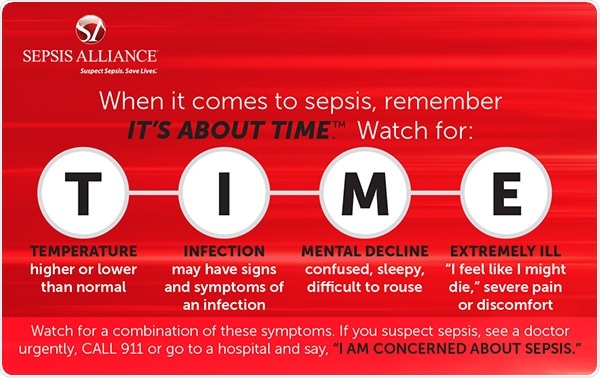Septic Shock
Sepsis is the result of an infection, and causes drastic changes in the body. It can be very dangerous and potentially life-threatening.
It occurs when chemicals that fight infection by triggering inflammatory reactions are released into the bloodstream.
Doctors have identified three stages of sepsis:
- Sepsis is when the infection reaches the bloodstream and causes inflammation in the body.
- Severe sepsis is when the infection is severe enough to affect the function of your organs, such as the heart, brain, and kidneys.
- Septic shock is when you experience a significant drop in blood pressure that can lead to respiratory or heart failure, stroke, failure of other organs, and death......................................................................................
- A bacterial, fungal, or viral infection can cause sepsis. Any of the infections may begin at home or while you are in the hospital for treatment of another condition.Sepsis commonly originates from:
- abdominal or digestive system infections
- lung infections like pneumonia
- urinary tract infection
- reproductive system infection


